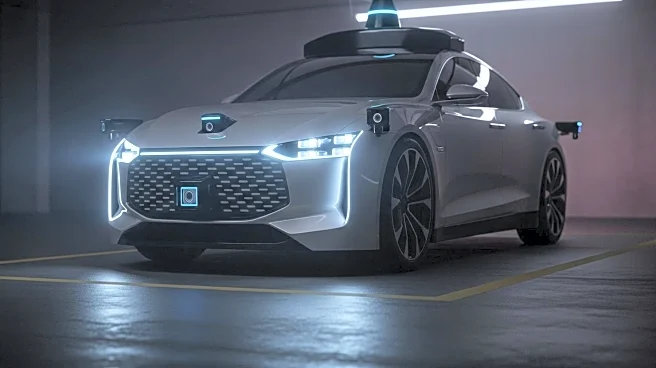What is the story about?
What's Happening?
Stellantis has decided to put its Level 3 Advanced Driver Assistance Systems (ADAS) program on hold, according to a report by Reuters. The system, known internally as STLA AutoDrive, was initially planned for a 2024 rollout. Despite being ready for production, Stellantis cited insufficient market demand as the reason for delaying the launch. This decision reflects broader challenges faced by traditional automakers in integrating advanced autonomous systems, which require significant investment and offer uncertain returns. Stellantis, which owns brands like Jeep, Fiat, and Citroen, has experienced financial strain, with its shares dropping over 40% in the past year due to declining sales.
Why It's Important?
Stellantis' decision to halt its Level 3 self-driving technology highlights the difficulties automakers face in the autonomous vehicle sector. The high costs and uncertain profitability of such technologies pose significant challenges, especially for companies already under financial pressure. This move may influence other automakers to reassess their strategies regarding autonomous systems, potentially slowing the industry's progress towards fully autonomous vehicles. The shift away from collaboration with Amazon on the SmartCockpit project to an Android-based platform indicates a strategic pivot in Stellantis' approach to software development, which could impact future technological innovations in the automotive industry.
What's Next?
Stellantis may explore alternative strategies to address the challenges posed by autonomous vehicle technology. This could involve focusing on enhancing existing driver assistance systems or investing in other areas of innovation that promise more immediate returns. The company's decision may prompt industry-wide discussions on the viability and timing of autonomous vehicle technology, influencing future investments and collaborations. Stakeholders, including investors and technology partners, will likely monitor Stellantis' next steps closely to gauge the potential impact on the company's financial health and market position.
Beyond the Headlines
The delay in deploying Level 3 autonomous systems raises ethical and legal questions about the readiness of such technologies for public use. Concerns about safety, liability, and regulatory compliance must be addressed before widespread adoption can occur. Additionally, Stellantis' shift in software strategy may reflect broader trends in the automotive industry, where companies are increasingly relying on established tech platforms to streamline development processes and reduce costs.
















